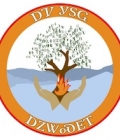Search
User login
Colloquium: "When Puff, the Magic Dragon became a Smoking Uktena" - Sara Snyder and Nannie Taylor (Cherokee) 11/30/12 3PM

Event Start:
Fri, 11/30/2012 - 3:00pm - 5:00pm
Location:
701C Dodge Hall (Center for Ethnomusicology) When Puff, the Magic Dragon became a Smoking Uktena: Text-setting&Translating Songs for Cherokee Language Revitalization
Sara L. Snyder (PhD Candidate, Ethnomusicology, Columbia University)
Nannie Taylor (Eastern Band of the Cherokee Nation)
Friday November 30, 2012
3PM-5PM
701C Dodge Hall (The Center for Ethnomusicology)
Columbia University Morningside Campus
Free and Open to the Public
Reception to Follow Presentation
Ms. Taylor and Ms. Snyder will discuss their collaborative work developing Cherokee-language versions of popular cultural texts for immersion education.
Sara L. Snyder (B.Mus UNC-Chapel Hill, M.Phil Columbia University), is a PhD. candidate in Ethnomusicology at Columbia University. Her dissertation project is titled Sovereign Voices: Poetics, Performance, and the Politics of Expression in Eastern Cherokee Language Revitalization. Sara has worked with the Eastern Band of Cherokees for three years and is currently the music teacher for New Kituwah Academy, the tribal-operated language immersion academy for preschool and elementary children. She is responsible for developing and translating a culturally appropriate music curriculum that meets NC state standards, while also developing a collection of interesting, age-appropriate Cherokee-language songs for students. This position allows Sara to be an “observant participant” and activist for the Cherokee language. Sara’s work is based on the premise that ethnographic research with a Native community should be a sustained collaborative process, where the “research” produces knowledge, products, and services that have practical value to that community. Sara’s collaborative projects and her position as music instructor demand a practical knowledge of music education, singing, linguistics, Cherokee culture, and music production. By necessity, her research cuts across the disciplines of Ethnomusicology, Linguistic Anthropology, and Music Education, ever mindful that the production of knowledge is inherently intersubjective and imbedded in the social politics of everyday life.
Nannie Taylor Hornbuckle was born in 1961 on the Qualla Boundary (Cherokee, NC) to a family of six brothers and four sisters. She grew up speaking the Cherokee language in her home and continues to speak Cherokee with her family. Nannie’s father used to sing Cherokee hymns such as “Wayfaring Stranger,” while her mother would perform songs from the Cherokee hymnbook with other women from the community. Nannie attended school on the reservation, and was told not to speak her language in school until the eighth grade, when a Cherokee language program was established in the school system. There were so many students that they asked Nannie to assist in teaching her peers their native language, which is also when she learned to read and write using the Cherokee syllabary.
Nannie began writing children’s songs in her native language back in the 1990’s for her own children but did not share with them at that time. Eventually a teacher from the Cherokee school system approached her and asked if she could write children’s songs for the students. Nannie composed many songs for that program, though most are currently unavailable due to the intellectual property restrictions of that contract. Several years ago, Nannie was approached by Gilliam Jackson, an administrator for the Cherokee language immersion academy, then in its infancy. Jackson asked her to compose songs for the children in the program, who were very young at that time. Nannie came home that day and asked the creator to give her inspiration. The same evening she awoke at 2AM, and the words came to her; by dawn she had written six songs. Soon thereafter, Nannie, accompanied by her brother on the guitar, recorded a CD of her children’s songs, including translations of songs such as “Mary Had a Little Lamb,” “Itsy Bitsy Spider,” and “Lou Lou Skip to My Lou.” Nannie’s songs are often structured to aid students in learning Cherokee grammatical concepts.
Nannie Taylor began collaborating with Sara Snyder in 2010, with a focus on translating popular songs, Christmas songs, and public domain children’s songs. Nannie and Sara found their skills to be synergistic and they share an appreciation for sparser text settings than those of many songs translated from English to Cherokee. Through their efforts, Nannie and Sara provide fun songs for the immersion students that they intend to provide an alternative to the English-language popular music students enjoy outside of school. Currently, Nannie and Sara have several projects on the horizon. They are creating completely original educational songs using vocabulary and topics from the immersion school curricula. They will also be working on a Cherokee language play and music for the immersion school’s Christmas program. Additionally, there are plans for a Cherokee dub of the animated classic Charlotte’s Web, which will feature song translations by Nannie and Sara.
Event Contact: Prof. Fox (aaf19@columbia.edu)
Upcoming Events
No upcoming events available
